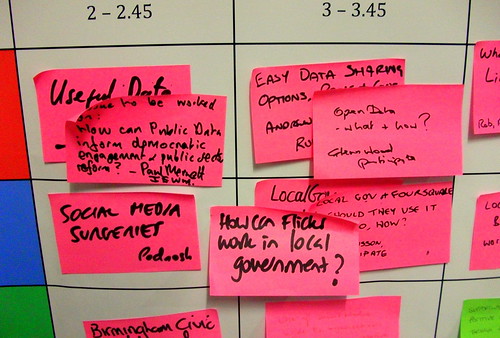I’ve just started a blog for the BBC on hyperlocal websites. It emerged from a meeting which Will Perrin organised between local Birmingham bloggers, the BBC’s Head of English Regions David Holdsworth and Laura Ellis – both of whom had been my bosses when I was at the Beeb.
We were discussing the best way for the BBC to connect with an understand the growing movement of very local, or hyperlocal, blogs. I suggested at the time the BBC started blogging about these sites. The why is pretty straightforward.
Something I had learnt back in 2005 when I started the Grassroots Channel Podcast (which told the stories of active citizens in Birmingham) is how making media about people is a great way to establish relationships. Through interviewing people for a podcast two things happened, I established stronger relationships with them, but they also started connecting with each other. The simple idea of understanding each other better and, to a degree, sharing a platform.
It was the case I was making last week at the new currency event. Storytelling is about connecting people and we hope to help do that through this blog. We will concentrate on the wider West Midlands region and the sort of blogs that interest me are outlined in the first post here. Besides taking an interest in the bloggers, what they write and why they do it, I’ll also be talking to a number of BBC newsrooms and production teams and introducing people.
I’m really looking forward to this. I have a passion for both the BBC and for people who use various forms of social media for civic good. I think they’re natural bedfellows. We shall see.


